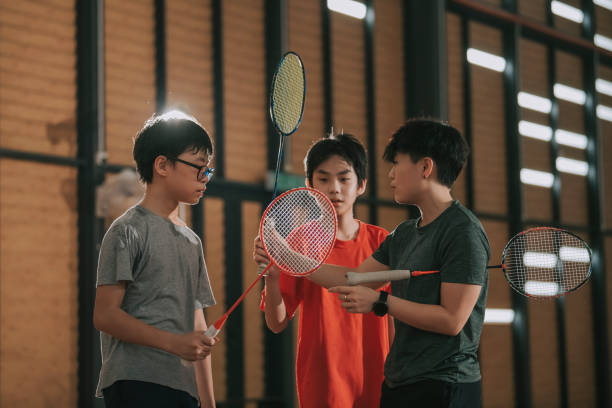[iStock]
When you’re learning, your brain goes through a process of receiving new information. To learn means to attain new knowledge or skills.
Autism is a neurological condition. The brains of autistic people are wired differently from neurotypical people, so they operate and learn differently from neurotypical people.
So how exactly does autism affect the ability to learn?
Read on to find out.
Stimming and Its Effects on Learning
[iStock]
Self-stimulatory behaviour, also known as stimming, is common in autistic people although not only autistic people stim. Some examples are hand-flapping, rocking and repeating words (also called echolalia).
It’s a way to cope and self-soothe. Stimming can be used to manage overstimulation, under stimulation, pain, anxiety, strong emotions, and more!
Stimming can interrupt classes especially if they are large movements or actions of violence, like biting, banging the head, or shouting.
On the other hand, when stimming is allowed, it can help an autistic student focus better. Some autistic students say that they stim more to cope when they’re stressed about a particular exam, or bored by a subject.
Stimming can help them focus when they’re studying.
While stimming is like a built-in mechanism for autistic people, it teaches them how to self-soothe effectively by engaging their senses. If autistic students stim in a way that’s harmful to themselves or others, they can be taught healthier ways to cope as well.
They Often Face Social Difficulty
[iStock]
Autism is a spectrum, and some autistic people struggle with interacting with people more than others.
In a setting where they have to interact with teachers and peers, learning may be hard.
This is particularly so for autistic students who have trouble with social interaction.
The anxiety that comes with being misunderstood and not being able to communicate effectively leads them to hesitate to ask for help. This prevents them from learning what they want or need to learn.
Sensory Processing Disorder (SPD)
[iStock]
Many autistic people have Sensory Processing Disorder (SPD) which affects their ability to process sounds and other physical sensations effectively.
In some cases, this leads to overstimulation.
Imagine acutely feeling the seams of your socks, the fabric of your jeans rubbing against your skin, the list goes on and you have no way to escape it.
The noise from the MRT might be normal to you, but it can be overwhelming for autistic people.
SPD affects every aspect of a person’s life, and it inevitably affects their learning ability as well.
Overstimulation, when left unmanaged, can lead to a sensory meltdown. Of course, that’s the biggest disruption to a student’s learning at the time if they’re in school, but there are other parts to it.
Being overly sensitive to sensory stimulation means that some students may find classroom lights too bright and be distracted or overwhelmed by background noises that only they are sensitive enough to hear. This leads to them being unable to pay attention to lessons properly.
Some autistic people also experience sensory hyposensitivity or understimulation, where they have trouble feeling stimulated enough to remain engaged with their surroundings.
To make up for this, some autistic people stim. They may stim more when doing their boring homework to help themselves pay attention and aid their learning.
SPD and Trouble Processing Instructions
[iStock]
Another symptom of SPD is the inability to process complex instructions. This affects an autistic person’s ability to do what they’re told to do, for example when it comes to Physical Education or Science experiments.
As a result, it takes them longer to learn when they’re told to do things.
When given information verbally, some people may also struggle to process what they’re hearing.
This is known as Auditory Processing Disorder (APD), where someone’s brain and ears don’t fully coordinate with each other. The words literally sound like a jumble.
It’s particularly common in autistic people and people with ADHD.
APD can cause those affected to miss out parts of what is said or misunderstand what they’re being told. This means that information needs to be repeated to them for them to understand it properly.
Students affected by APD also have trouble learning to speak clearly, often missing out syllables from words (which is called syllable attenuation).
Special Interests: Learning Quickly and In Detail
[iStock]
What is an autistic person’s special interest?
A special interest is something that an autistic person is intensely interested in, and is very important and meaningful to them. Autistic people can be so focused on their special interest(s) that it’s all they want to talk or think about.
Examples of special interests include learning all about Sakura (the stationery brand) and its history, specific vehicles and how they have a special kind of seatbelt. Some autistic people also have a special interest in certain people.
The list is a long, long one.
Special interests can recharge an autistic person’s energy and make them happy. They’ll spend a lot of time researching that topic and may find out every little detail about it.
Having a special interest helps them learn about that topic quickly and many autistic people have turned their special interests into careers.
An autistic student with a special interest in computers and technology can become a computer engineer. Or one with a special interest in astronomy and space can become an aeronautical engineer and maybe even work at NASA in the future!
Hyperfocus
[iStock]
Hyperfocus is something shared by many autistic people and people with ADHD.
When autistic people hyperfocus, they can become completely unresponsive to external stimuli.
It takes a lot to get their attention, simply because in a hyperfocused state it’s like the world falls away and it’s just them and the task they’re hyperfocusing on.
A lot of the time, hyperfocus happens in relation to their special interest(s), but it’s a state that allows them to pay full attention to their task.
This gives them high productivity which can help them learn very quickly.
Conclusion
[iStock]
Everybody’s learning ability is different.
There are so many aspects of autism to consider when wondering about how autism affects learning ability.
Autism is a neurodivergent condition. The brains of autistic people are wired differently from neurotypical people.
It doesn’t mean that they learn badly, it just means they learn differently from us.
If you’re thinking of becoming a special needs tutor, you need to be very patient. It’s a challenging but extremely fulfilling job.
And if you’re already a special needs teacher, share your stories with us!








